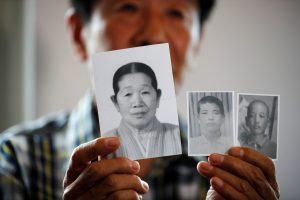
By Brendan O’Brien
(Reuters) – Microsoft Corp charged that hackers linked to Russia’s government sought to launch cyber attacks on the U.S. Senate and conservative American think tanks, warning that Moscow is broadening attacks ahead of November’s congressional elections.
The world’s biggest software company said late on Monday that it last week took control of six web domains that hackers had created to mimic sites belonging to the Senate and the think tanks. Users who visited the fake sites were asked to enter login credentials.
It is the latest in a string of actions Microsoft has taken to thwart what it charges are Russian government hacking attempts. The company said it has shut down 84 fake websites in 12 court-approved actions over the past two years.
“We’re concerned that these and other attempts pose security threats to a broadening array of groups connected with both American political parties in the run-up to the 2018 elections,” Microsoft President Brad Smith said in a blog post.
Microsoft said it had no evidence that the hackers had succeeded in compromising any user credentials before it took control of the malicious sites.
The Kremlin rejected the Microsoft allegations and said there was no evidence to support them.
“We don’t know what hackers they are talking about,” Kremlin spokesman Dmitry Peskov told reporters. “Who exactly are they talking about? We don’t understand what the proof and the basis is for them drawing these kind of conclusions. Such information (proof) is lacking.”
Moscow has repeatedly dismissed allegations that it has used hackers to influence U.S. elections and political opinion.
The targets, Microsoft said, included the International Republican Institute, whose high-profile Republican board members include Senator John McCain of Arizona, who has criticized U.S. President Donald Trump’s interactions with Russia and Moscow’s rights record.
The Hudson Institute, another target, has hosted discussions on topics including cyber security, according to Microsoft. It has also examined the rise of kleptocracy, especially in Russia, and has been critical of the Russian government.
Other malicious domains were used to mimic legitimate sites used by the U.S. Senate and Microsoft’s Office software suite, the company said.
CYBER TENSIONS
Microsoft’s report came amid increasing tensions between Moscow and Washington ahead of midterm elections in November.
A U.S. federal grand jury indicted 12 Russian intelligence officers in July on charges of hacking the computer networks of 2016 Democratic presidential candidate Hillary Clinton and the Democratic Party.
Special Counsel Robert Mueller is investigating Russia’s role in the 2016 election and whether Trump’s campaign worked with Russians to sway the vote. Russia denies interfering in the elections and Trump has denied any collusion.
The type of attack is known as “spear fishing,” in which the hackers trick victims into entering their username and password into a fake site in order to steal their credentials.
Facebook Inc said late last month it had removed 32 pages and fake accounts from its platforms in a bid to combat foreign meddling ahead of the U.S. votes.
The company stopped short of identifying the source of the misinformation. But members of Congress who had been briefed by Facebook on the matter said the methodology of the influence campaign suggested Russian involvement.
(Reporting by Brendan O’Brien; Additional reporting by Andrew Osborn and Tom Balmforth in Moscow; Editing by Jim Finkle and Steve Orlofsky)










